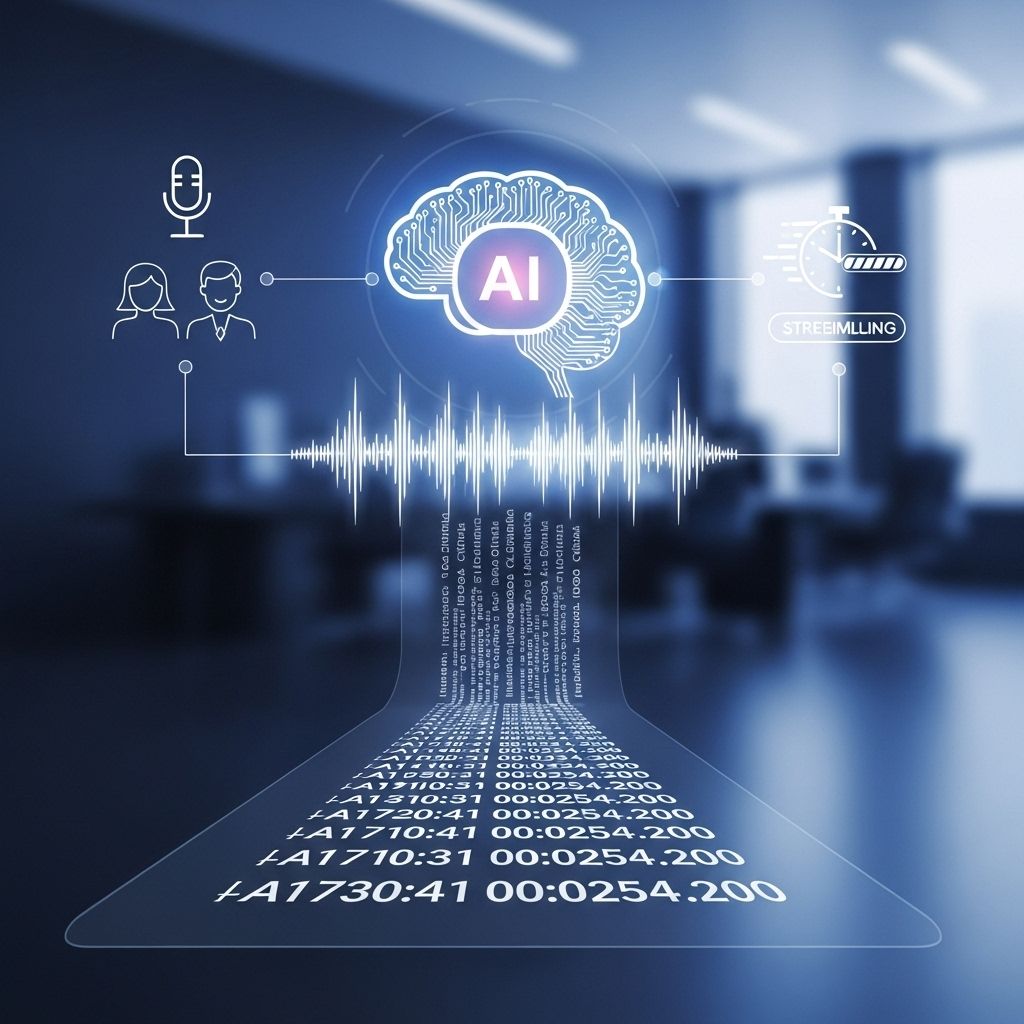Unlock Creativity with AI Voices for Storytelling
Discover how AI voices can enhance storytelling, making it more engaging and creative. Explore the benefits and tools available for writers.

In today’s digital age, storytelling has evolved far beyond the traditional narrative forms. The integration of artificial intelligence (AI) into the creative process is revolutionizing how stories are crafted and shared. One of the most fascinating applications of AI in storytelling is the use of AI-generated voices to narrate tales. This technology not only enhances the auditory experience but also opens up new avenues for creators to explore their narratives more deeply.
Unlocking creativity has never been easier with AI voices that can bring storytelling to life in innovative ways. By incorporating diverse voice profiles, writers can explore new dimensions in their narratives, enhancing engagement and emotional resonance. To elevate your projects further, check out these discover unique 3D logo examples for visual storytelling.
Table of Contents
The Evolution of Storytelling
Storytelling has been an integral part of human civilization since ancient times. From oral traditions to printed books, and now to digital formats, the way we tell stories has continuously adapted to technological advancements. With the rise of AI, we find ourselves in a unique position where technology can assist in the creative process, making storytelling more accessible, immersive, and engaging. Here are some key points in the evolution of storytelling:
- Oral Traditions: Stories were passed down verbally, often changing with each retelling.
- Written Text: The invention of writing allowed stories to be documented, preserving them for future generations.
- Print Revolution: The printing press democratized access to literature, enabling the widespread sharing of stories.
- Digital Age: The rise of the internet and multimedia transformed storytelling into a more interactive experience.
AI Voices: The New Narrators
AI voices have emerged as a game-changer in the storytelling landscape. These voices are not merely robotic; they are designed to convey emotion, nuance, and personality. This section delves into what AI voices are, their capabilities, and how they enhance storytelling.
What Are AI Voices?
AI voices, or text-to-speech (TTS) technologies, utilize machine learning algorithms to convert written text into spoken word. With advancements in natural language processing (NLP) and deep learning, these voices can mimic human speech patterns, making them sound increasingly lifelike.
Capabilities of AI Voices
AI voices come equipped with a range of features that make them suitable for storytelling:
- Emotion Detection: Advanced AI can alter tone and intonation based on the emotional context of the text.
- Customizability: Creators can select different voices, accents, and styles to match the story’s mood.
- Multi-Language Support: AI voices can narrate stories in various languages, broadening the audience reach.
- Consistency: AI ensures a consistent voice throughout the story, maintaining immersion.
Utilizing AI Voices in Storytelling
The integration of AI voices into storytelling opens numerous possibilities. Below are some applications and their benefits:
1. Audiobooks
AI voices are increasingly being used to create audiobooks, offering a cost-effective alternative to traditional narration.
2. Interactive Stories
In interactive narratives, AI voices can respond to user choices, providing a personalized listening experience.
3. Educational Content
AI voices can narrate educational materials, helping students engage with the content more effectively.
4. Game Narratives
Video games can utilize AI voices for dynamic storytelling, adapting dialogue based on player actions.
Choosing the Right AI Voice
Selecting the appropriate AI voice for a project is crucial for conveying the desired tone and atmosphere. Here are some factors to consider:
1. Character Alignment
The voice should align with the character’s personality and role within the story. For instance:
| Character Type | Voice Characteristics |
|---|---|
| Hero | Confident, clear, and strong |
| Villain | Deep, sinister, and unpredictable |
| Comic Relief | Light-hearted, humorous, and energetic |
2. Audience Consideration
Understanding the target audience is essential. A youthful audience might respond better to a lively, playful voice, while a more mature audience may prefer a deeper, more resonant tone.
3. Context of the Story
The setting and genre of the story play significant roles in voice selection. A fantasy tale may benefit from a whimsical voice, while a thriller may require a more serious tone.
The Future of AI Voices in Storytelling
As technology continues to advance, the capabilities of AI voices will expand. Here are some anticipated developments:
- Real-Time Adaptation: Future AI may be able to adapt voices in real-time based on audience reactions.
- Enhanced Emotion Recognition: Improved algorithms will allow AI to detect and convey a wider range of emotions.
- Greater Personalization: AI voices may become more capable of tailoring stories to individual listener preferences.
- Collaboration with Human Creators: We may see more projects that blend human creativity with AI assistance for unique storytelling experiences.
Conclusion
The integration of AI voices into storytelling presents an exciting frontier for creators and audiences alike. By harnessing the capabilities of AI, storytellers can craft more engaging narratives that resonate with diverse audiences. As technology continues to evolve, the possibilities for creative expression are limitless, and the art of storytelling is set to reach new heights.
FAQ
What are AI voices for storytelling?
AI voices for storytelling are synthetic speech technologies that can narrate stories, enhance audio experiences, and bring characters to life using artificial intelligence.
How can AI voices improve my storytelling?
AI voices can add dynamic and engaging narration to your stories, allowing for varied tones, emotions, and character differentiation that enhance the overall storytelling experience.
Are AI voices customizable for different characters?
Yes, many AI voice platforms allow users to customize voices to match different characters, adjusting pitch, tone, and style to fit the narrative.
Can I use AI voices for commercial storytelling projects?
Yes, you can use AI voices for commercial projects, but be sure to check licensing agreements and terms of service of the AI voice provider.
What types of storytelling can benefit from AI voices?
AI voices can enhance various storytelling formats, including audiobooks, podcasts, video narratives, and interactive storytelling applications.
Is it easy to integrate AI voices into existing storytelling platforms?
Yes, many AI voice solutions offer APIs and integrations that make it easy to incorporate voice narration into existing storytelling platforms and applications.








